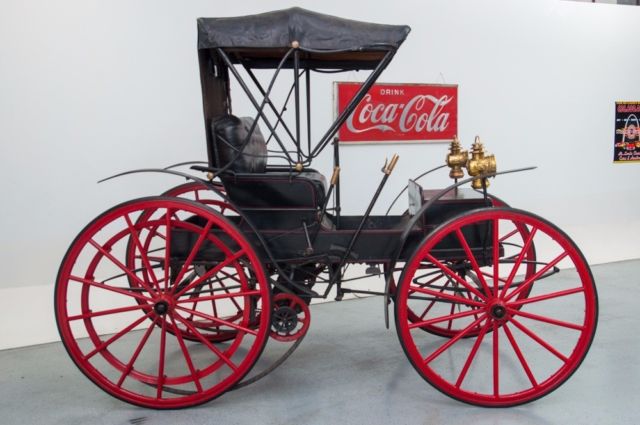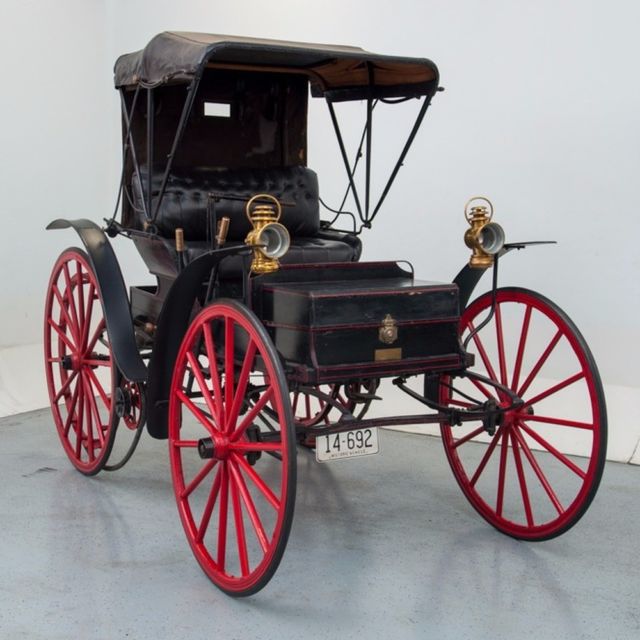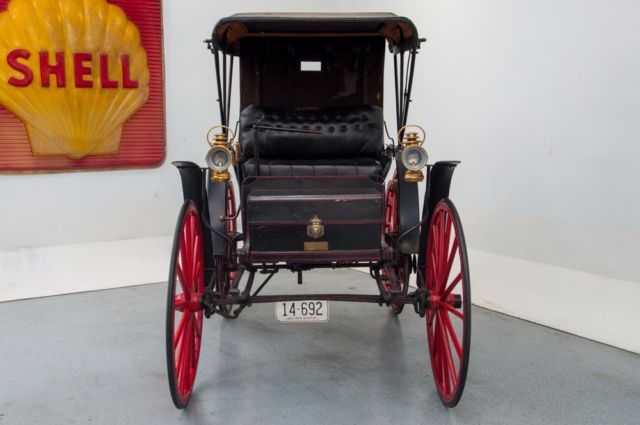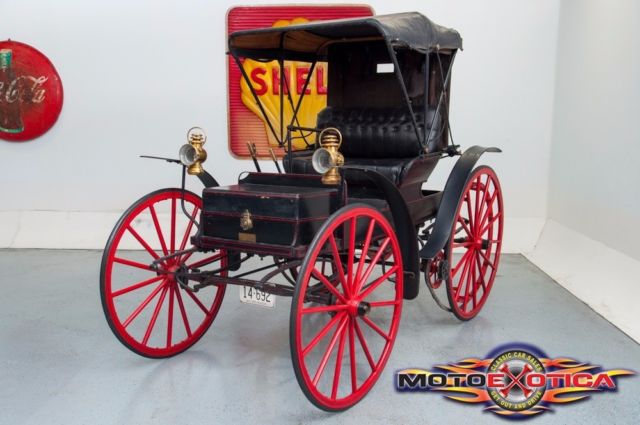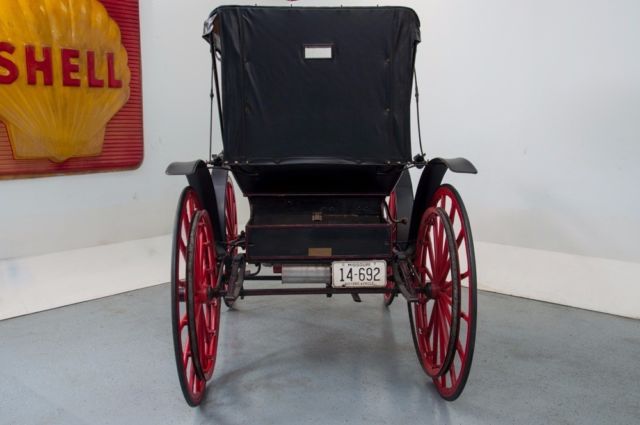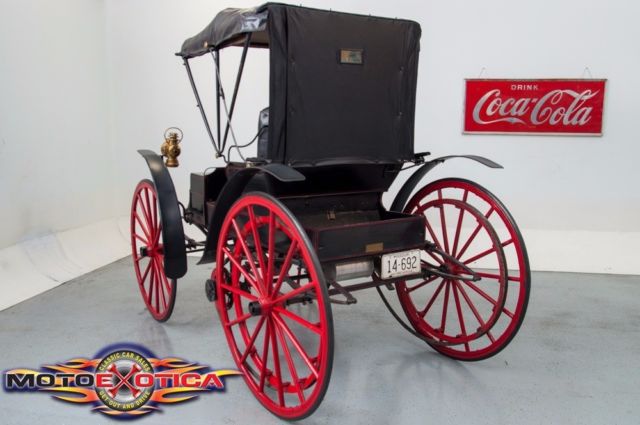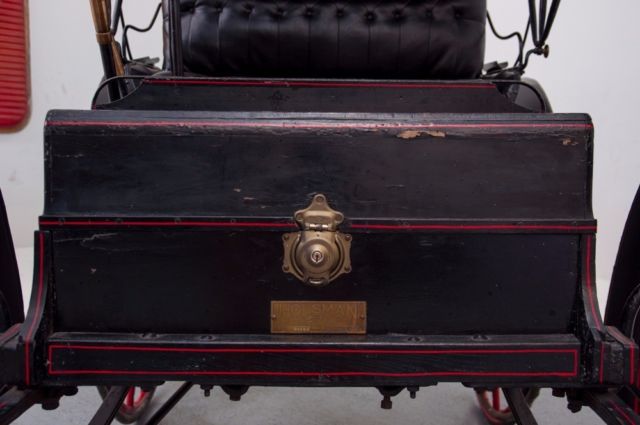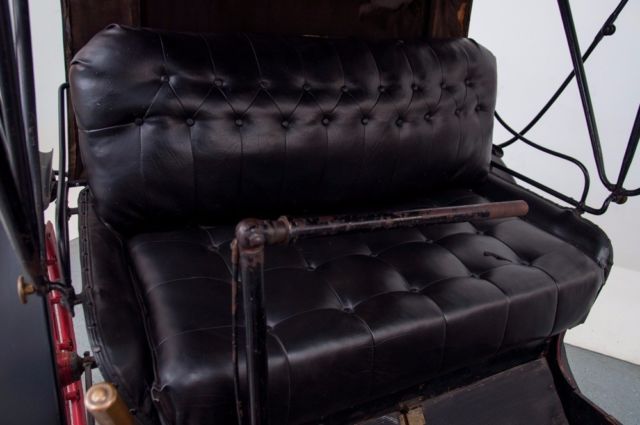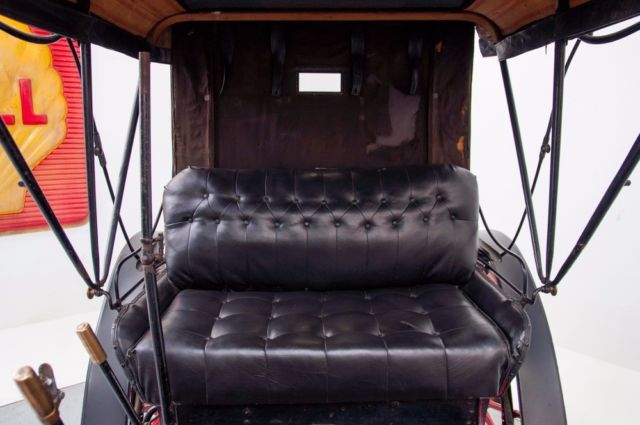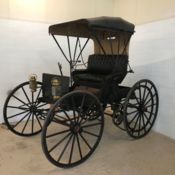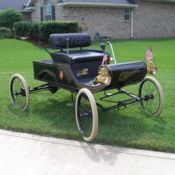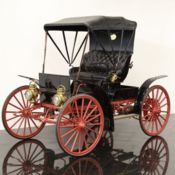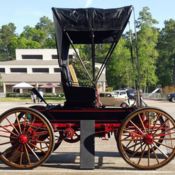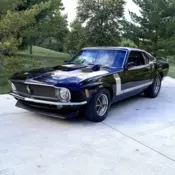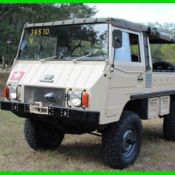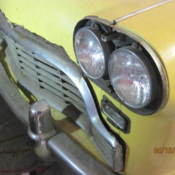1902 Holsman Model 3 Piano Body "High Wheel" Runabout
| Make: | Other Makes |
| Model: | G80 |
| SubModel: | Model 3 |
| Type: | Runabout |
| Trim: | Holsman Model 3 Piano Body "High Wheel" Runabout |
| Year: | 1902 |
| Mileage: | 1 |
| VIN: | 2485V |
| Color: | Black |
| Engine: | Air-cooled |
| Cylinders: | 8 |
| Transmission: | One-speed |
| Drive type: | RWD |
| Interior color: | Black |
| Vehicle Title: | Clear |
| Item location: | Saint Louis, Missouri, United States |
| Extras |
| Listed by | Private seller |
Description of 1902 Other Makes G80 Holsman Model 3 Piano Body "High Wheel" Runabout |
|
1902 Holsman Model 3 Piano Body Runabout Description 1902 Holsman Model 3 Piano Body "High Wheel" Runabout Ideal addition to any collection of turn-of-the-century Americana Same owner for the past 15 years Produced by Holsman Automobile Company of Chicago, Illinois Holsman introduced his high wheel automobile to the public at the Chicago Automobile Show in January 1903 1 of only 451 produced in 1908 Rare example of an even rarer vehicle 12 HP 108 CID two-cylinder, air-cooled engine It is claimed that the vehicle can attain a speed of eighteen miles per hour Cable-driven, one-speed transmission with reverse Black exterior and interior with optional top Period correct and rarely seen charcoal foot warmer Red wooden wheels and solid rubber tires Two bronze headlights and Holsman History Book (92nd copy out of 100 limited editions printed) includedLooking for a new rolling conversation piece for your collection? Do you specialize in very early 20th century cars? MotoeXotica Classic Cars is very proud to present this rarely seen 1902 Holsman Model 3 Piano Body "High Wheel" Roadster that was produced by Holsman Automobile Company of Chicago, Illinois. This is a rare example of an even rarer car (1 of only 129 produced in 1902) and is an ideal addition to any collection of turn-of-the-century Americana. Finished in black with a black bench seat, this model has large, artillery type wheels, painted red and sports the optional top to keep the sunshine off of your coconut during fair weather. The paint and trim are in good overall condition. There are no windows on this vehicle and its only lights come in the form of a pair of bronze headlight "lanterns" that hang at the front. Those red wheels, 44-inch in front and 48-inch in back, are in overall great shape and shod with hard rubber edges. The piano body style offers no conventional hood, fenders or doors the floorpan and roof are in remarkable condition considering their age. A 12 HP 108 CID two-cylinder, air-cooled engine that is mated to a cable-driven, one-speed transmission with reverse powers the car. Inside, there's a charcoal foot warmer to ward off the chill on an autumn or winter day (lap blankets not included). The black bench seat is in good order as is the shift lever while the tiller is in fair condition and shows some patina. As is common to these very early 20th century vehicles, there are no gauges, so no speedometer or odometer. The Holsman was manufactured from 1901 to 1911 in Chicago, Illinois, which was the center of automobile invention in America at the turn of the last century. Henry K. Holsman, a prominent architect, designed, manufactured and sold the Holsman Automobile. He is credited with the invention of the first usage of the "reverse" gear. The Holsman Automobile was a "high wheeler, "? built to run along the muddy, rutted roads of America's great plains. They became very popular and were manufactured and shopped as far away as New Zealand. They all held true to the company motto, "High Wheels Travel All Roads Because All Roads Are Made to Be Traveled by High Wheels.†H.K. Holsman designed a vehicle and applied for a basic covering patent on 31 July 1901, which was filed at the Patent Office 2 January 1902, application No. 70,346. Against this application, patent No. 697,720 was granted on 15 April 1902. In addition to this basic patent, he also designed several carburetors, a circuit breaker, and other innovative mechanical features applicable to the cars' drivability. He began the construction on his first car in 1901, completing and testing it by early 1902. It was built strictly for experimental purposes, was the only car built in 1902 and it was not sold. Several makes of motors were purchased and tried out, but none proved satisfactory. They then designed their own and had it built, which proved to be to their liking. It was then apparently jobbed out to the Independent Harvester Company, Plano, Illinois for the manufacture of the individual parts. From there, they were shipped to the Holsman factory for finishing, assembling, and testing. Holsman called its first vehicles carriages. Using forethought, Holsman designed the first experimental motor carriage with hooks attached to the front axle so that a set of traces could be attached to allow the car to be pulled by a horse in an emergency. Following assembly of the first hand-built Holsman carriage, it had to be pulled down the street until the motor fired. It caught and ran for about one half block before stalling. They made some changes, and tried again. This second time, it ran for about two blocks. After many attempts, it finally operated to their satisfaction. He introduced the Holsman high wheeler to the public at the Chicago Automobile Show in January of 1903. The first cars manufactured and advertised were Design Number 3 at $625, a single seated vehicle; Design Number 4 at $700, the number 3 with an additional seat attached to the rear of the body and heavier construction; plus Design Number 5 at $525, a stripped model 3, using long distance plain axle bearings rather than the Timken roller bearings, a single chain drive between the crankshaft and the jack shaft rather than the double chain drive. The Design Number 3 body was curved at the front, and obviously, rather expensive to manufacture. So, on August 1, 1904, they introduced a revised Model 3 using the piano body, which is the one most extant to this date. Only 13 cars were manufactured in 1903 with 11 being delivered against orders for 17. His first sale was to a purchaser in South Dakota. In April 1905, they moved to their new offices in Monadnock Block, Chicago. Production continued in the original 3,000 square foot building through early 1906, but they did manage to increase the square footage available for manufacturing to 5,000 in 1905. By the end of 1905 they were planning for additional manufacturing space and by May of 1906 they had built a new three story, 240′ x 50′, factory building with approximately 33,000 square feet of floor space available. This increased their production capacity to just over six times the existing. The pioneer Holsman was so successful, that by 1905, the high wheel Culver, La Petite, Palmer and Jewell had joined the Holsman in the marketplace. By 1907, there were a total of 15 companies producing high wheel automobiles in the United States, 31 in 1908 and the number of companies reached a peak of 41 in 1909. Just as sharp as the rise came the decline - 24 in 1910, nine in 1911 and four in 1912. Documentation includes a limited edition Holsman History Book. We have not had this car running to date. The motor is free but has not been tested. Please note that this vehicle is titled as a 1902 Holsman on a clean and clear Illinois title. The vehicle is actually a 1908 Model Year per the vehicle no ranges of 2300-2700. For the year 1908 Holsman made 451 total vehicles. We believe the 1902 on the title came from the patent number on the vehicle of 1902. Which according to the book Holsman History 1901-1910 A history of the Holsman high wheel automobile is a very common occurrence. This car is currently located at our facility in St. Louis, Missouri. It is sold as is, where is, on a clean and clear, mileage exempt title. GET OUT AND DRIVE!!! Click here for our Holsman YouTube video! VIN: 2485V Note: Please see full terms and conditions listed below that pertain to the purchase of any said vehicle, thank you. |
 Home
Home Contact us
Contact us NEWEST CARS
NEWEST CARS SELL YOUR CAR
SELL YOUR CAR FAQ
FAQ